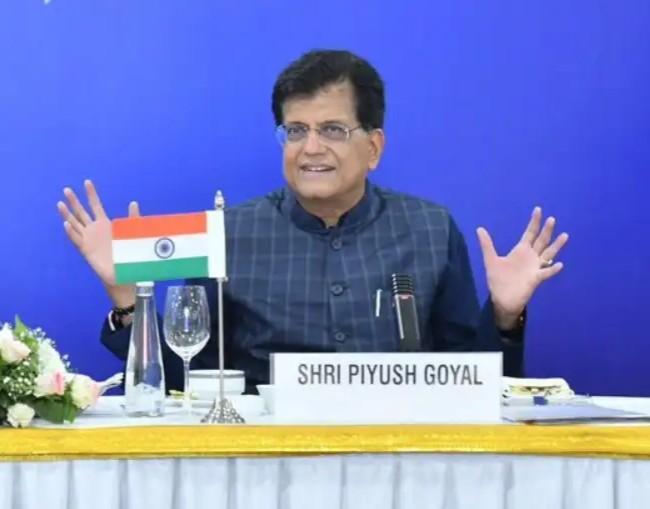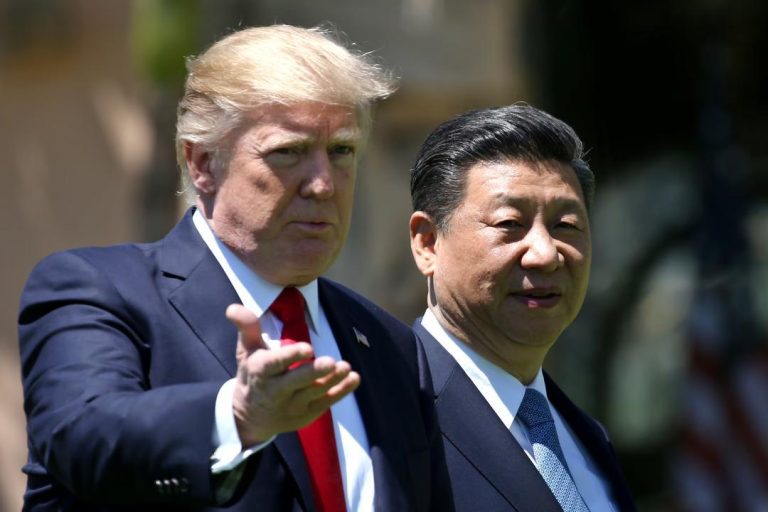
We Never Negotiate at Gunpoint: India after Trump’s 90-day Pause on Tariffs
In a recent development that has sent shockwaves across the global trade landscape, the United States has announced a 90-day pause on tariffs for India and several other nations. This move, seen as a gesture of goodwill by many, has sparked a mixed reaction from Indian policymakers and business leaders. While some have hailed the decision as a welcome respite, others have expressed caution, citing concerns about the long-term implications of this decision.
At the center of the debate is India’s Commerce Minister, Piyush Goyal, who has been vocal about the country’s stance on trade negotiations. In a recent statement, Goyal emphasized that India will not negotiate at gunpoint, implying that the country will not compromise on its interests merely to meet a deadline. This stance has been seen as a clear message to the US administration, which has been pushing for a quick resolution to the ongoing trade tensions.
“We never negotiate at gunpoint,” Goyal stated, adding that favorable time constraints can motivate negotiations, but India will not hurry until it is able to secure the interests of its country and people. This statement has been interpreted as a clear indication that India is unwilling to compromise on its demands, including the removal of tariffs and other trade barriers.
So, what does this mean for India’s trade relations with the US? The 90-day pause on tariffs has provided a temporary reprieve for Indian exporters, who have been struggling to cope with the increased costs and complexities associated with the tariffs. However, many experts believe that this decision is only a temporary measure, and that the underlying issues that led to the trade tensions remain unresolved.
The US-India trade relationship has been a complex and contentious one, with both sides accusing each other of unfair trade practices. The US has been critical of India’s high tariffs and restrictive regulations, which it claims are stifling American businesses and investors. India, on the other hand, has accused the US of protectionism and of targeting Indian companies and industries unfairly.
The tariffs imposed by the US on Indian goods, including steel and aluminum, have had a significant impact on Indian businesses. Many Indian companies have reportedly suffered losses as a result of the tariffs, which have increased the cost of production and made it difficult to compete with foreign rivals.
Despite the challenges posed by the tariffs, India has remained steadfast in its commitment to protecting its interests. The country has been pushing for a more balanced trade relationship with the US, one that takes into account the interests and concerns of both sides.
The 90-day pause on tariffs has provided an opportunity for both sides to engage in talks and find a mutually beneficial solution. However, many experts believe that the underlying issues that led to the trade tensions remain unresolved, and that a more comprehensive and sustainable solution is needed.
In conclusion, the 90-day pause on tariffs has provided a temporary reprieve for Indian exporters, but it is clear that the underlying issues that led to the trade tensions remain unresolved. India’s Commerce Minister, Piyush Goyal, has made it clear that the country will not negotiate at gunpoint, and that any solution must take into account the interests and concerns of both sides.
As the talks continue, it is essential that both sides remain committed to finding a mutually beneficial solution. The US and India have a long history of cooperation and collaboration, and it is in the interests of both countries to find a way forward that promotes trade and economic growth.





